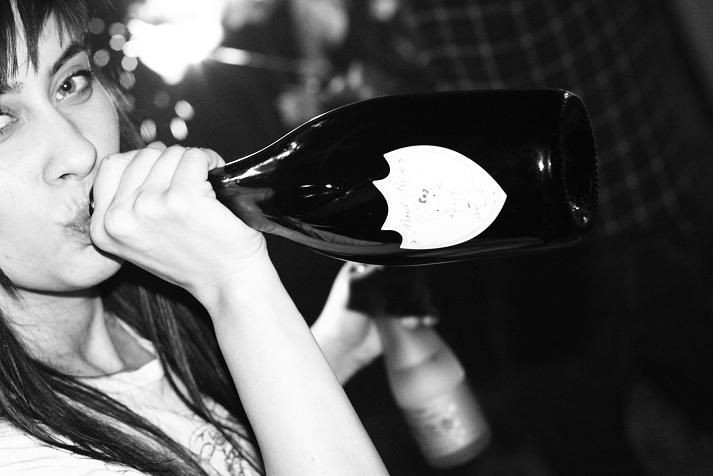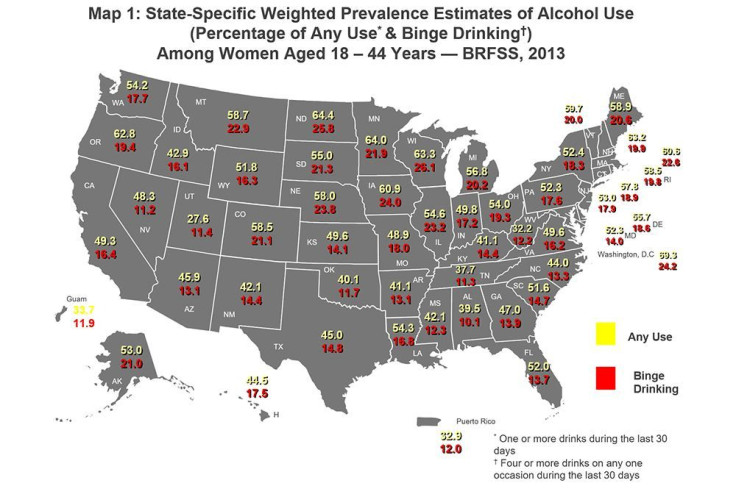Doctors Announce Zero Tolerance Policy For Drinking Alcohol During Pregnancy, As No Amount Is Safe

To drink or not to drink while pregnant? That has been the question for decades. Health experts have reverberated between siding with a no-tolerance alcohol policy and another more lenient approach to drinking while gestating. Finally, a leading group of U.S. pediatricians from the American Academy of Pediatrics (AAP) have released a report that clearly warns mothers: No amount of alcohol is safe while pregnant.
"The only guarantee of having no effects from alcohol is no prenatal alcohol exposure," said the report’s co-author Dr. Janet Williams, a professor of pediatrics at the University of Texas Health Science Center, in a press release. Williams added that future research will continue to show, “alcohol has subtle yet important lasting effects on academic performance, attention, behavior, cognition, memory, language skills, and visual and motor development."
According to the report published in the journal Pediatrics, “there is no safe trimester to drink alcohol,” and “no amount of alcohol intake should be considered safe.” Consequences of drinking any amount of alcohol at any point in the pregnancy can cause thinking and behavioral problems that last a lifetime, the authors wrote in the report. They argue, if there’s a slight chance of alcohol harming a developing baby, why would a mother justify taking the risk?
Williams says that regardless what the medical field has to say about drinking alcohol while pregnant, there will be still be some women who will, "continue to rationalize that their own alcohol use during pregnancy is sufficiently low or infrequent to be safe."
In 2013, a survey conducted by the Centers for Disease Control and Prevention (CDC) revealed more than half of New York women had one or more alcoholic beverages during the last 30 days. More than 18 percent of those women reported binge drinking, which means they had four or more drinks in one sitting. Using medical records, the CDC estimates up to 1.5 infants out of every 1,000 live births are born with a fetal alcohol spectrum disorder in America. Those children are consequently born with dozens of different abnormal characteristics and behaviors from hyperactive disorders to poor coordination and speech delays. The CDC has stood by the zero tolerance policy for alcohol during pregnancy, but it wasn’t until the AAP officially announced their position that a clear consensus could be made for women who may still be confused on recommendations.

A History of Drinking for Two:
During the 19th century, doctors gave their pregnant patients permission to consume alcohol throughout their trimesters. In fact, they encouraged it. Experiencing morning sickness? Doctors prescribed champagne as a treatment and brandy with soda as an appetite stimulant. By the 20th century, alcohol was used as a remedy to quell nerves as they went into labor because doctors thought it would relax the uterus and even slow premature labors.
“Alcohol, as such, is not injurious and need not be eliminated during pregnancy,” an obstetrics textbook published in 1953 read. “An occasional cocktail, highball, beer or ale, need not be restricted and may be most beneficial.”
Such lax recommendations bred today’s convoluted notions on alcohol consumption during pregnancy. According to Fetal Alcohol Spectrum Disorders, pregnant women have generally consumed alcohol throughout history. Ever since medical technology advanced to include ultrasounds and fetal monitoring in the 1950s, there has been an incremental move toward advising against alcohol consumption.
According to a study published in the journal Alcohol and Alcoholism, fetal alcohol syndrome went largely unrecognized until 1973, when a pattern of abnormalities began to emerge from children born to alcoholic women. It was first dubbed “tragic disorder” because of the characteristic facial abnormalities and mental retardation born from women who reported alcohol consumption during their pregnancy. It hasn’t even been 50 years since the link was discovered, but the AAP hopes its conclusive statement dispels any confusion or discrepancy that’s still present in today’s society.
"Women of childbearing age who drink alcohol should consider their pattern of drinking," the report’s co-author Christina Chambers, a pediatrics professor at the Center for Better Beginnings at the University of California, San Diego, in a press release. "Avoid binge drinking and avoid pregnancy as long as they are drinking. If pregnancy is planned, then alcohol can be discontinued." She added, the AAP’s statement "is an important stand to take, and hopefully it will lead to less stigma associated with [fetal alcohol spectrum disorders] and to more access to and uptake of prevention and treatment services."
Source: Williams J, Niclasen J, and Chambers C, et al. Pediatrics. 2015.
Published by Medicaldaily.com



























